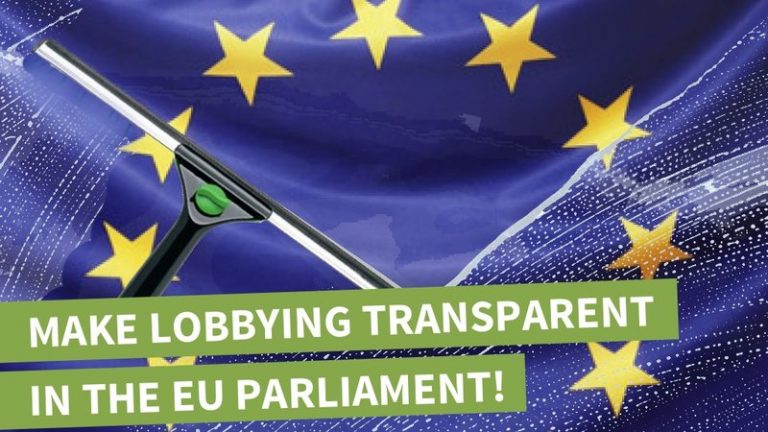Ahead of next week’s plenary vote on the revision of Parliament’s rules of procedure, more than 100 MEPs from five political groups have submitted amendments to increase Transparency and strengthen Integrity in the European Parliament. The draft plenary agenda foresees the vote for Tuesday 13 December 12h30. This can be subject to change until the agenda is decided on Monday, the day before.
MEP Sven Giegold, rapporteur on transparency and integrity in the EU institutions and spokesperson of the German Greens in the European Parliament, commented:
This cross party initiative is a big opportunity for us MEPs to show that we are serious about transparency and integrity not just in the Commission but also for ourselves. The broad support bridging from Social-Democrats to Conservatives makes us hope for a majority when the new rules are voted on in plenary.
Just a week ago, Parliament called on the Commission to strengthen the cooling off period for former Commissioners to prevent them from working as lobbyists in the sector they used to regulate. Each MEP will have to decide next week if they are ready to apply a cooling off period also on themselves. More than 100.000 EU citizens have called on MEPs to be equally tough on themselves when it comes to Integrity and transparency.
Amendments: https://sven-giegold.de/wp-content/uploads/2016/12/RoP-plenary-AMs-submitted-corect-numbers.pdf
Petition: https://www.change.org/p/eu-parliament-make-lobbying-transparent-close-revolving-doors
Background: CONTENT OF THE 9 CROSS-PARTY AMENDMENTS
No meetings with unregistered lobbyists
If particular interest groups are covered by the scope of the transparency register, MEPs should strive to only meet them if they are transparent about their activities. The wording “systematic practice” allows for some exceptions, for example to protect political dissidents.
Transparency of lobby meetings
MEPs should also publish a list of meetings with interest representatives, if they’re organised in advance. Obviously a chance encounter would not need to be reported.
Transparency of trilogue documents
Two amendments seek to clarify that trilogue documents should be covered under the existing access to documents regulation. Theoretically this is already the case, but access to these documents are often refused in practice simply because they are related to trilogues.
Listing clients that MEPs work for
This amendment seeks to improve the declarations of interest of Members, who are already obliged to list information about their side-jobs. Since in some cases, the descriptions (e.g. lawyer, consultant) are too vague to assess any potential conflicts of interest, a list of clients would be more appropriate.
Closing the revolving door
In the current proposal from the AFCO committee, members should notify the Advisory committee on ethics if they plan to engage in lobbying activities after leaving office. An addition ensures that the Advisory Committee would check these notifications, and ensure transparency if the ex-Member does take up a lobby job.
Cooling off period for MEPs
Another amendment proposes a sort of “cooling off period” that should last for the same amount of time as the ex-Member receives their transitional allowance. Since this is funded by European taxpayers, the proposal is that ex-MEPs should not be paid for engaging in lobbying activities if they are also receiving public funds.
Improving the Parliament’s Ethics Committee
This amendment puts the decision of who should be part of the advisory committee in the hands of the Parliament bureau rather than only in the hands of the Parliament President. The pool of potential candidates to the Advisory committee is also enlarged to include any member of JURI or AFCO.
Effective sanctions for MEPs violating the Code of Conduct
This amendment is designed to avoid situations in which the Advisory committee provides a recommendation for follow-up but the Parliament’s President does not follow this advice. So far, the EP president has not implemented any of the sanctions recommended to him, rendering the integrity system dysfunctional. With added transparency, there is clarity for citizens and MEPs alike about how a particular risk of conflict of interest was assessed and dealt with.

